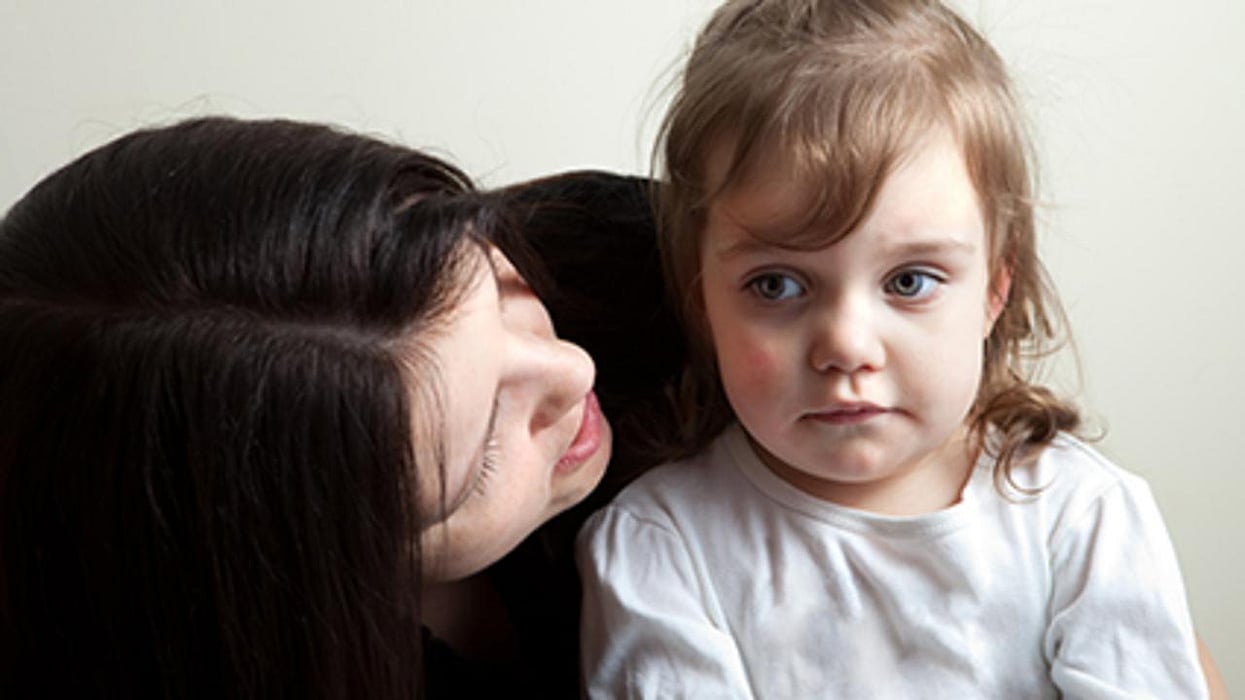Toddlers’ Attention to ‘Motherese’ Could Give Clues to Autism

THURSDAY, Feb. 9, 2023 (HealthDay News) -- Some toddlers who don't interact with their parents may have early signs of autism, a new study suggests.
Researchers showed kids between 12 and 48 months of age "split-screen" moving images, then used eye tracking to evaluate their attention. Some toddlers who paid closer attention to scenes without people rather than to someone saying playful phrases a mother might use were later diagnosed with autism with 94% accuracy.
"Autism can be accurately diagnosed in a subset of children using new eye-tracking technology in just a few minutes," said lead researcher Karen Pierce, a professor of neurosciences and co-director of the University of California, San Diego Autism Center of Excellence.
"This finding helps us to rethink how autism is diagnosed and opens up an unprecedented opportunity to access diagnoses in remote areas where there are no clinicians available and to fast-track participation in autism treatment," she said.
Studies have shown that so-called "motherese" speech stimulates attention and learning, helping children develop language skills and emotional reactivity. Toddlers with autism who do not pay as much attention to this speech style might have poorer social skills later in life, the researchers noted.
Motherese is playful speech characterized by sing-song style, exaggerated intonation, simple grammar, high pitch and slow tempo. It's sometimes called "parentese" or infant-directed speech.
"This particular eye-tracking test seems to be quite good at finding the subset of kids with autism who have issues with either processing speech or lack of interest in speech," Pierce said. "This is a unique subtype, so only around 18% of kids who eventually were diagnosed with autism failed the eye-tracking tests. The majority of kids with autism actually pass it."
For the study, Pierce's team studied 653 toddlers, from 1 to 4 years of age. Some had an autism diagnosis, others did not.
The toddlers were shown two videos: one of a woman speaking in motherese, and one with either a busy highway or a movie of abstract shapes and numbers with accompanying electronic music. The children used their eyes to control which video played at a given time.
Toddlers without autism spent about 80% of the time watching the video with motherese. Toddlers who fixated on motherese less than 30% of the time were accurately identified as having autism using eye movement alone.
These children also had lower scores on tests of language and social skills. Toddlers with autism who spent most of their time looking at motherese had better social and language skills, Pierce said.
This specific test is not yet available, but Pierce hopes that in the future it will be used to help diagnose autism early so treatment can begin.
Early treatment has been shown to help kids cope with the condition as they grow and sometimes overcome it, Pierce said.
Parents may also be able to spot early signs of autism, she said.
"If a toddler between 12 and 48 months doesn’t appear to pay attention to parents while they are speaking, this could be an early warning sign of autism and warrants a follow-up with a qualified professional," Pierce said.
One expert who reviewed the findings said eye tracking could be useful in the early identification of autism.
"Tracking toddlers’ eye movements in relation to audiovisual stimuli and not just visual stimuli should add to our growing understanding of the underlying pathophysiology behind autism and the variation in its presentation," said Dr. Anish Dube, who heads the Council on Children, Adolescents and their Families at the American Psychiatric Association.
Eye-tracking technology may not only become a useful tool in early detection of autism, it may also help identify infants most at risk for language delays and those most in need of early intervention, he said.
"Parents should continue to be curious about their child, learn about the broad range of normal and abnormal behaviors toddlers may exhibit, and seek professional advice when they have doubts about their child’s behavior or in their interactions with you," said Dube, who is also an assistant clinical professor of psychiatry and human behavior at the University of California, Irvine School of Medicine.
The findings were published online Feb. 8 in JAMA Network Open.
More information
For more on autism, see the U.S. Centers for Disease Control and Prevention.
SOURCES: Karen Pierce, PhD, professor, neurosciences, co-director, University of California, San Diego Autism Center of Excellence; Anish Dube, MD, chair, Council on Children, Adolescents and their Families, American Psychiatric Association, and assistant clinical professor, psychiatry and human behavior, University of California, Irvine School of Medicine; JAMA Network Open, Feb. 8, 2023, online
Related Posts
Placebo + Methadone Improves Opioid Use Disorder Treatment Retention
TUESDAY, April 18, 2023 (HealthDay News) -- A conditioned open-label placebo...
International Adoption
As many parents who have adopted overseas know, sometimes your heart's desire...
Un tratamiento común para la fibrilación auricular podría ser más riesgoso para las mujeres
MIÉRCOLES, 19 de octubre de 2022 (HealthDay News) -- Aunque existe un...
COVID Crisis Has Stalled Fight Against HIV/AIDS
THURSDAY, July 28, 2022 (HealthDay News) -- Efforts to end the global HIV...
